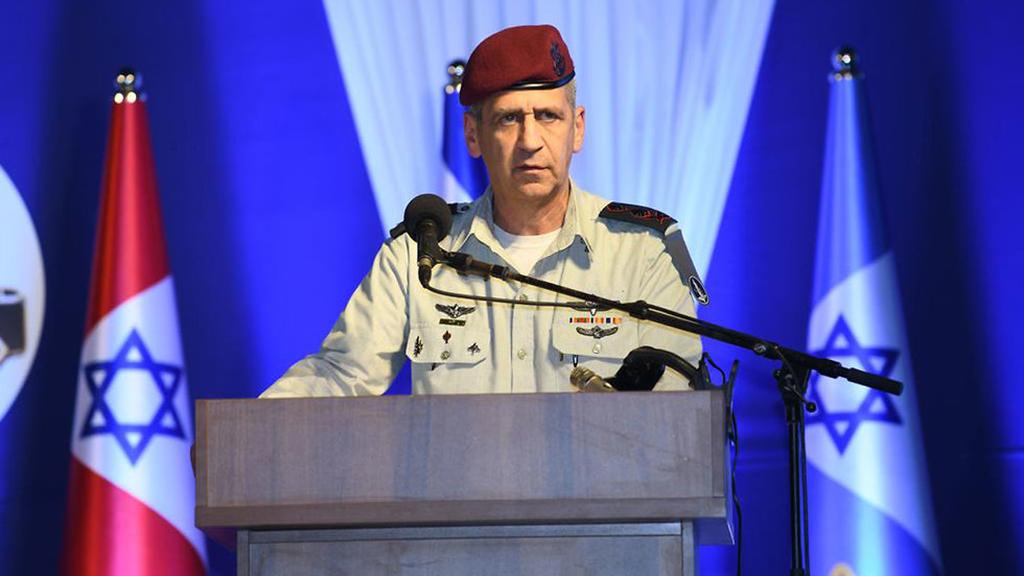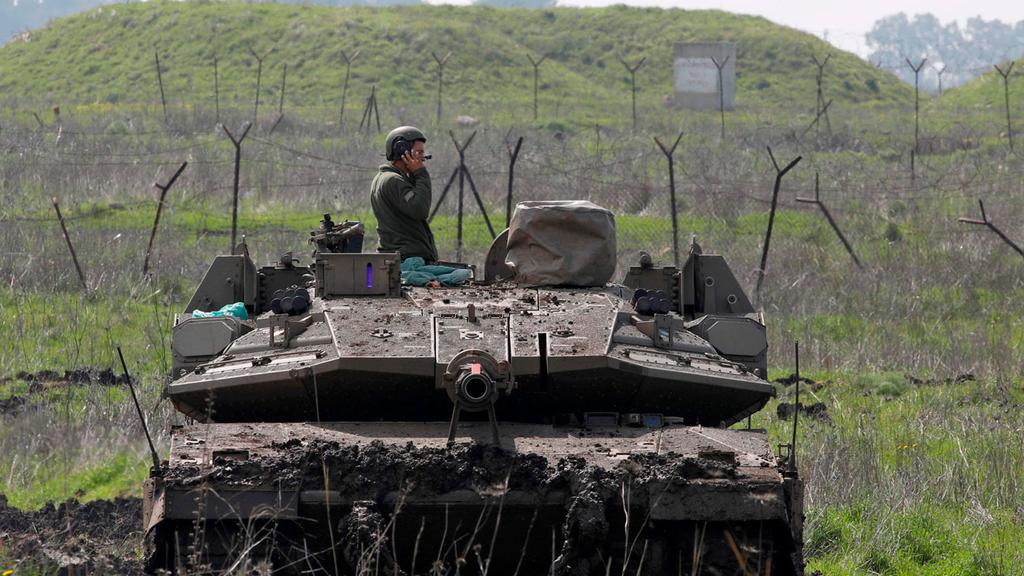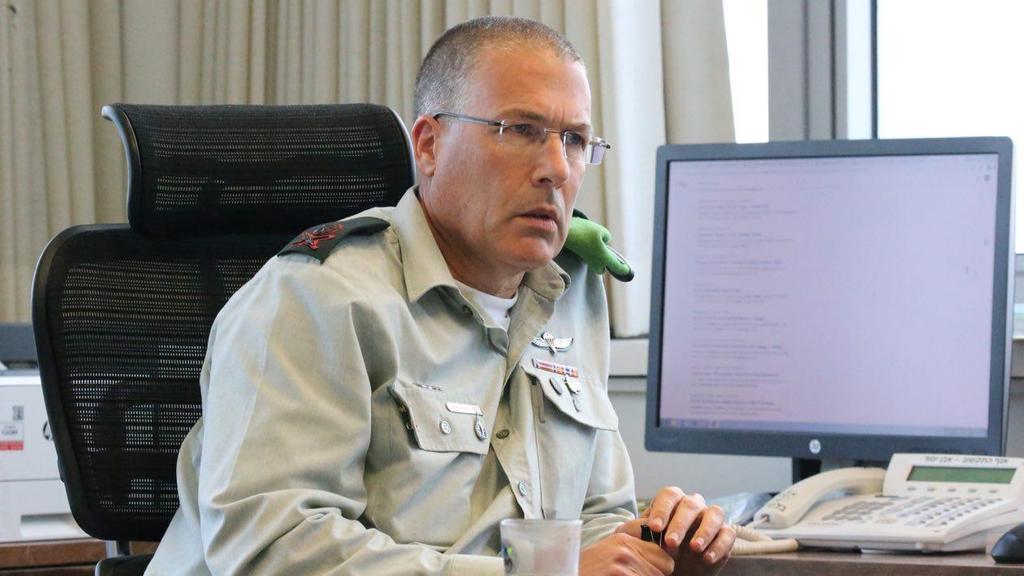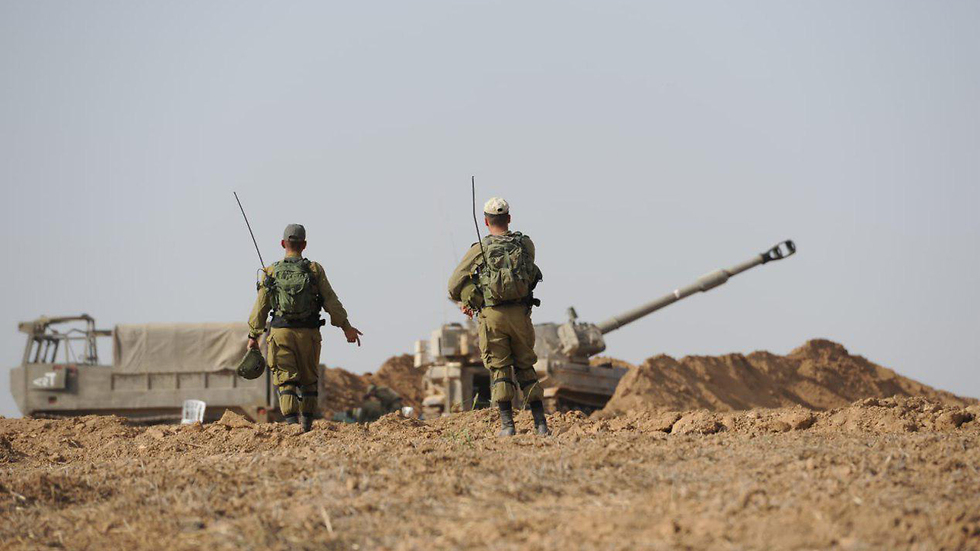Getting your Trinity Audio player ready...
Amidst the coronavirus pandemic, the IDF is trying to work out when, how and if Prime Minister Benjamin Netanyahu’s plan to annex the West Bank settlements will come to fruition.
Any annexation plan will most likely elicit a different reaction from the Palestinian Authority, the Jordanians, the region's states including the Iranians and their proxies, and the international community.
In any case, the IDF will have to adapt to any response scenario, while understanding that proportionality is important, because the main goal should be to prevent a greater escalation that may have negative regional and international implications for the State of Israel.
At the same time, the IDF and the Shin Bet security service will have to provide protection for Jewish communities in the area, and thwart terror on the roads. This means sending large forces into centers of friction in order to control the height of the flames without igniting them, and gradually calming the situation by avoiding Palestinian deaths and minimizing the damage to the fabric of Palestinian life as much as possible.
IDF Central Command and the Operations Division have already begun planning a dedicated training regime for the units who will be sent in to these territories to subside the fires, all in line with the instructions of IDF Chief of Staff Aviv Kochavi.
However, a potential escalation in the territories and implications it may have for other arenas are not at the top of the IDF's list of priorities right now.
Kochavi and his staff are currently preparing for a campaign to win approval for and then implement the multi-year work program (‘Momentum’). This program should give the State of Israel and its citizens a more efficient, modern and powerful army by 2030.
In closed military forums, Kochavi displays contagious confidence that the IDF- in two or three years time - can achieve a swift and clear military victory if forced into war, while dramatically reducing the casualties and destruction among Israel’s civilians, and inflicting heavy casualties on the enemy and its assets.
5 View gallery
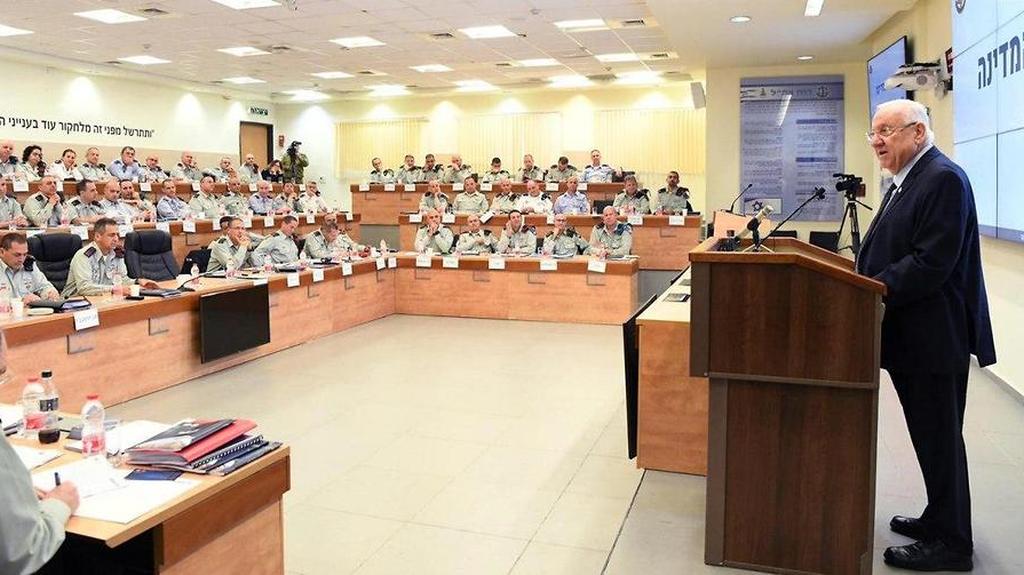

President Reuven Rivlin during Aviv Kochavi's 'Momentum' presentation
(Photo: Amos Ben Gershom, GPO )
Kochavi’s ‘Momentum’ plan is intended to significantly reduce the number of missiles, rockets and shells that Israel’s home front will absorb, both because the duration of the fighting will be significantly shortened, and because the IDF will manage to maneuver with lethal air assistance, to the main launch areas found deep inside enemy territory.
The IDF also hopes the program will instill such a clear military and consciousness victory, that it will create a long-term strategic deterrent for Israel, one that will postpone or prevent the next war.
The next step will be to submit ‘Momentum’ for approval by Israel’s new security cabinet. After that, The critical stage will come when Finance Minister Israel Katz and Defense Minister Benny Gantz will be asked to agree on a budget outline in order to implement the core objectives of the program over the next five years.
Kochavi claims that to win with minimum losses and destruction, the IDF needs to make a big leap forward in five areas: Combined "multidimensional" combat, in order to increase the deadliness of the IDF’s land units.
The production of a continued, yet a reliable stream of targets identified by intelligence agencies.
Innovation in warfare methods including cyber.
And new preparations be made to protect against missile and aerial threats, including in the field of laser technology.
Kochavi’s plan’s main objective is the implantation of multidimensional combat capabilities: the goal is to organize and equip the IDF and train it with different methods of combat, in a way that allows all units from all arms to work together.
Kochavi aspires for all corps to communicate and work together during a fight, and not only in exceptional cases. He wishes to engrain this a method of combat and principle in the very credo of the IDF.
“‘Momentum’ is underway and is making progress all over the region," Kochavi told IDF commanders this week. “(Momentum) balances the readiness and transformation challenges and defines the required mix between offensive investment (70%) and defensive investment (30%),” added Kochavi.
The results and belief in the program are already evident, as Deputy Chief of Staff Maj. Gen. Eyal Zamir, together with the Head of the Planning Directorate Maj. Gen Amir Abulafia, were able to secure NIS 600 million from the transitional government's budget earlier this year for the plan.
Despite securing such ample funding, the IDF has not forgotten that Momentum has yet to be formally approved by the Cabinet and there is still no security budget for the current year or years to come.
And yet the question remains, how much money will remain for Israel’s security after the economic consequences of the coronavirus pandemic are budgeted for? This question hangs over the head of the entirety of the General Staff.
The budget increase requested by the IDF for Momentum for 2020-2024 amounts to billions of shekels.
For the sake of censorship, it is impossible to name the exact amount, but it is really not that much compared to the NIS 57 billion that constitutes the current security budget.
Finance officials say that the chief of staff's expectations are unrealistic during the current period, and are preparing to demand cuts in IDF manpower budgets, including salaries and social security benefits for military personnel, which have always been a popular target for budget cuts and has public backing.
On the other hand, the IDF argues that human capital is its most precious resource, and if one wants achievements on the battlefield through the Momentum plan, personnel should be properly rewarded.
The IDF's most weighty argument when dealing with the Finance Ministry, concerns the procurement of Israeli-made products as part of the new plan.
These include the Merkava Mark IV tanks manufactured in over 100 factories throughout the country, the Namer APC, which offers a new and much safer dimension to land warfare, small armed drones, and urban warfare robots for fighting in places like Gaza.
The production of this kind of hardware gives weight to the IDF argument that procuring defense means from Israeli industries is a highly significant engine of growth and job retention, and that during the current climate, it is not a luxury, but a necessity with two-fold benefits - financial and defense.
Kohavi’s instructions to his subordinates are unequivocal: to understand and internalize that the Israeli economy is in real distress - economic, health and psychological - due to the coronavirus pandemic.
This is why priority must be given to restoring the stricken economy, businesses and employment rates. Even if it means implementing the Momentum plan takes a couple of more years and certain facets of the program are not implemented.
Kochavi’s second directive is to help the economy as well as the IDF, and to increase procurement of Israeli-made equipment in a way that creates jobs and resources for the Israeli economy.
The third is to find creative financing methods that will enable the IDF to replenish itself immediately and commit to paying the debt in two or three years, once economic growth resumes.
The fourth order from the head of the army is not to be dragged into slanderous battles with the Treasury and other government ministries as happened in the past.
The biggest question now is how effectively and resolutely Defense Minister Benny Gantz will use his political leverage to help the current chief of staff fulfill the revolution that he and his staff are seeking to accomplish.
Come June, the campaign will begin, during which we will know what is more frightening to the Israeli public - the virus or Hezbollah's missiles.


